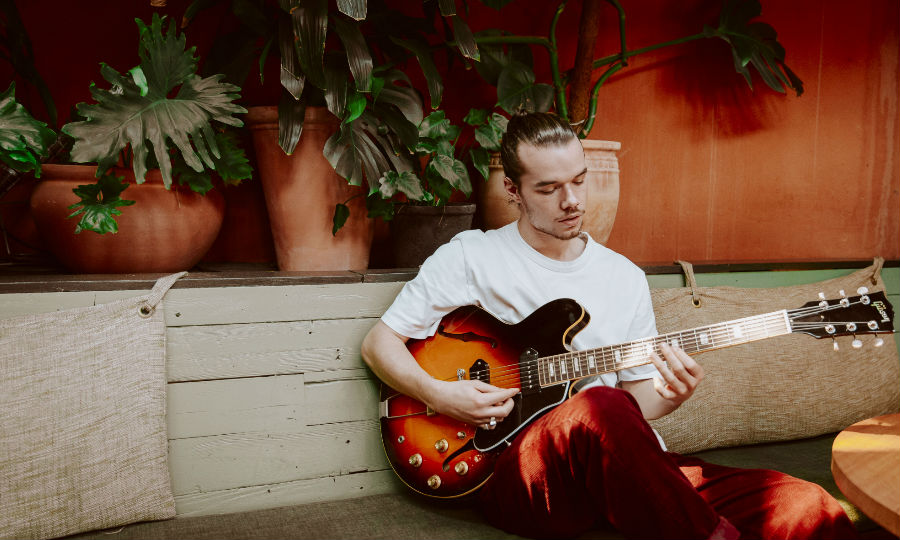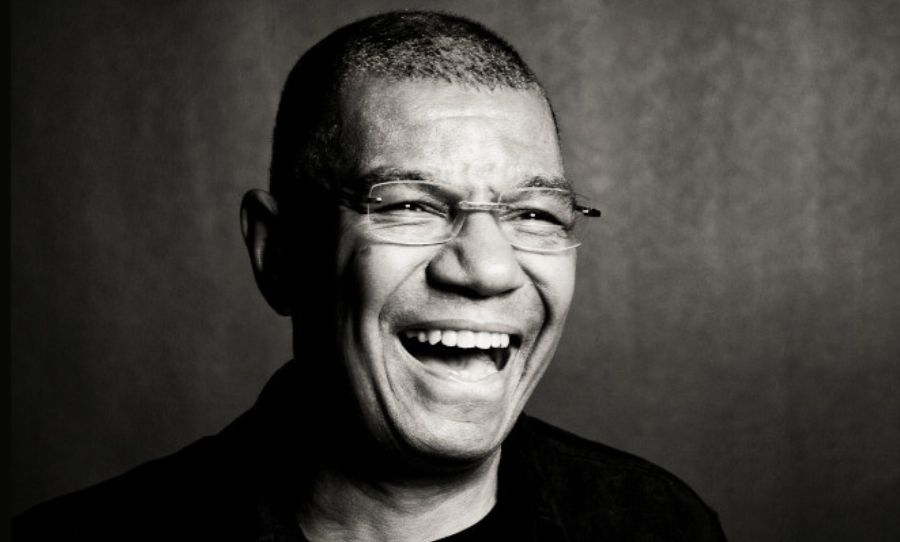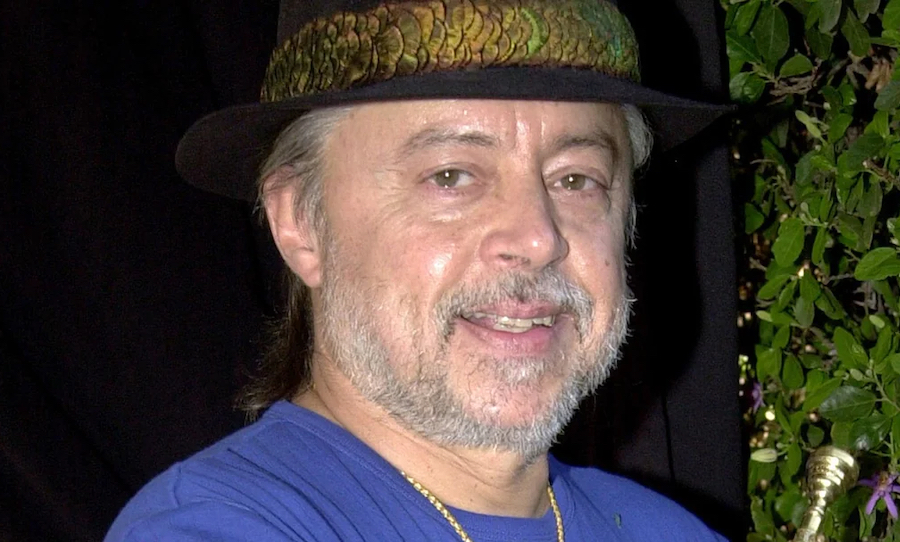Off the back of a UK tour with Kamasi Washington and the release of his first full length album, Live In Amsterdam, Oscar Jerome is a musician on the cusp. A mouthpiece for the burgeoning London jazz scene, Jerome has his toes dipped in some of the most promising projects to emerge from the Square Mile in recent years.
Yet to him they are just mates, and music is a touchstone for reflection, and positive change in a world of unstable political provocation. We caught up with Oscar Jerome recently to chat about the new limitless potential of jazz, musical community, and reptilian overlords.
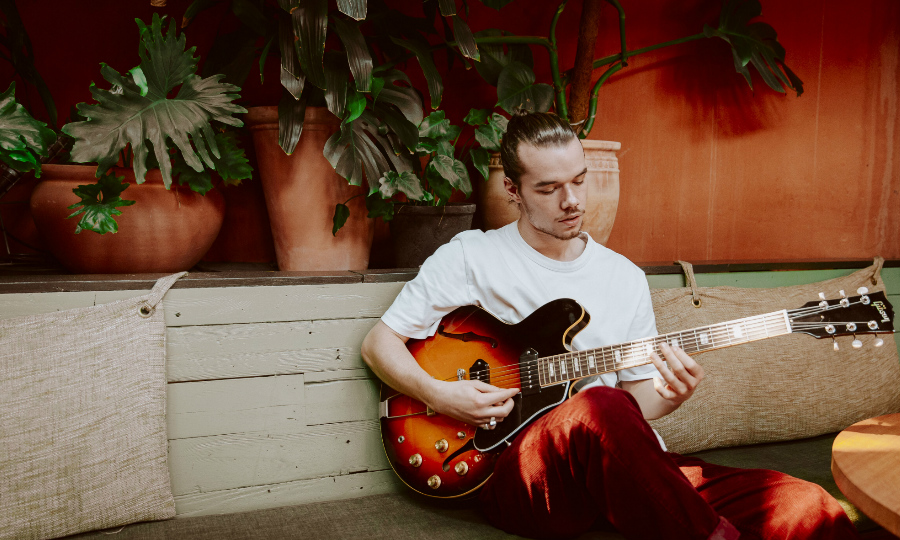
Oscar Jerome is turning heads with an effortless confluence of jazz-fusion, funk and hip-hop, nigh the days of musicianship return.
HAPPY: Your 2018 single Do You Really explores the detriments of indulging your ego. Have you developed any tricks to keep your ego in check?
OSCAR: Having conversations with people that you trust those you can be open with. Also criticising yourself when you make mistakes so that you can work on it. But I would also equally say that it’s something I’m always working on.
HAPPY: You’re very exposed, almost self-sacrificially honest. Is it sometimes illuminating to write a song so raw?
OSCAR: When you put it out I would say it’s different but when you’re writing it, that’s the hard work. But it can also be quite liberating. I don’t really have a problem with talking about my own issues or being open with self-criticism. I just try not to think about it too much really, just put it out. But what people take from it will be different depending on who they are and I like writing lyrics that are a little bit cryptic and things might remain a little bit secret. Just for me.
HAPPY: Your only full-length album is Live In Amsterdam. How did a live album come to be your first full-length record?
OSCAR: We had just been gigging so much. Before I released any music I had been playing music for years before that. The ‘live’ thing has always been an integral part of what we do and I always want people to understand how it’s a very different experience. I’ve come from a jazz background so the improvisation doesn’t always come off in a song that is quite produced.
HAPPY: Why Amsterdam? Does it have a special place for you?
OSCAR: We recorded a couple of gigs on that tour. We did London but I also have a decent following in Holland so I knew they would be a good listening crowd but also very into it. Also the sound is very good there and we were well into the tour and warmed up with the material. So it was a number of things really but nothing too sentimental.
HAPPY: There is a lyric in your latest single Lizard Street, ‘London’s on the radio’. What do you think is responsible for the flourishing jazz scene in London right now, especially the resurgence in young listeners?
OSCAR: Yes, London the radio. It’s on the radio all the time. As for the jazz scene I would say it is a vast number of things. It had been a flourishing place for years and years. You go back to Jimi Hendrix and he was based in London, though he was from the US, it’s a very open-minded place. With what’s going on now it’s a mixture of great musicians coming up at the same time and there has been some great youth music programs which have been around like ‘Tomorrow’s Warriors’, a lot of great artists coming up now have been involved in that.
Also a lot of popular dance, garage, jungle and broken beat music, which was dominant in London has come out of the history of Caribbean music in London and the wider UK. This also led to grime etc. But a lot of people now are really looking for something more interesting. Popular music now has become so sterile, mathematic, and boring. People are still intelligent; they want to hear stuff that challenges them. I think people are starting to seek that out a lot more and why there has been a shift of people getting behind jazz.
Jazz in London has also come in waves and cycles. In the ‘80s there were people like Courtney Pine and Steve Williamson. In the ‘90s there was the acid-jazz kinda thing with Jamiroquai and Soul II Soul. In the 2000s there was a broken-beat scene with 4hero, Kaidi Tathum and we are still involved with a lot of those people. I sometimes play with the percussionist who played in Soul II Soul. So it’s a long lineage. Sorry I’ve ranted that in such a roundabout way but that’s it. The lineage coupled with people seeking out new music.
HAPPY: Besides jazz, there are splashes of blues, funk, soul, world and even hip-hop in your music, especially in the delivery of your lyrics. What came first and last?
OSCAR: I used to love the blues and rock when I first started playing guitar, which I think is very natural. I loved the old stuff like Led Zeppelin, Jimi Hendrix, Muddy Waters, John Lee Hooker, B.B. King. So that was the first stuff but I was also into hip-hop from a very young age, which I think came from video games funnily, like Tony Hawks Pro Skater. Then I got into jazz around 15 or 16 and that kind of took over. Now it’s just a whole mix of stuff really.
HAPPY: You’ve been receiving some significant airplay on BBC Radio’s Hip-Hop station. Is that wild to see so much cross-pollination happening with your influences and styles?
OSCAR: Yeah well that’s exactly what I want. I think it’s so dangerous to get stuck in a box. In a lot of music journalism, they want to put you in a box because they are lazy. They might say I’m a jazz musician and leave it at that but there’s a lot more going on under the surface. That’s why I prefer to be interviewed by musicians because they understand more and see more.
But it’s really cool and I love it. I’ve worked really hard to try and push into different places and play on different festivals that aren’t solely jazz. I want to play to a lot of young people and inspire the youth.
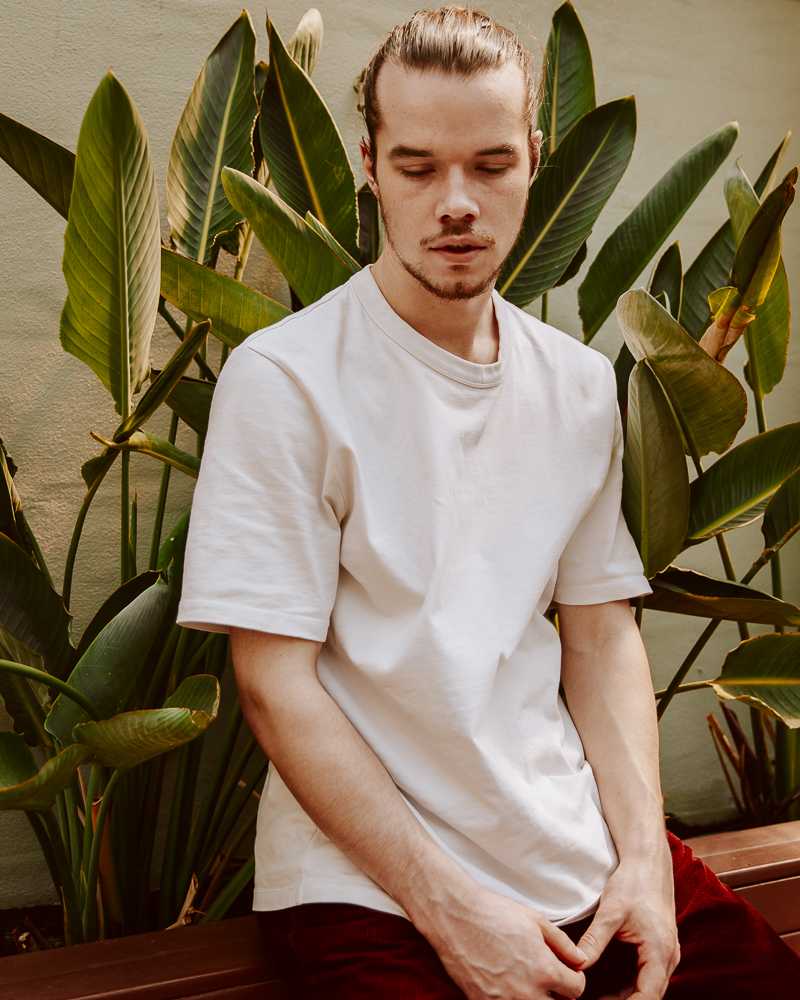
HAPPY: How do you come to be in London afro-beat outfit KOKOROKO?
OSCAR: I think it came through studying at the Trinity College of music. Some of the musos in that band studied there and also were just involved in the London music scene. It’s just a very vast, exciting and diverse scene. I was always very inspired by West African music and Sheila, the trumpeter, knew that so she invited me along. It started off with us just playing Fela Kuti tunes but it took us a long time to get to a point where we were playing our own music. It’s very exciting now.
HAPPY: You’re also friends with Ezra Collective’s Joe Armon-Jones who recorded piano on your second EP Where Are Your Branches? Is there a distinct sense of community amongst London jazz cats?
OSCAR: Yeah definitely, it’s just a friend group really. They are all just my mates. I go round to Joe’s house and listen to records and watch TV and just hang out. It’s funny how it turns out like, ‘Oh you’ve got this person on this thing’ he’s just my mate really. But there is a strong sense of community there for sure and it’s been built over a long period of time. We all just want to make music really.
HAPPY: You have a lot of strong political views and values in your music. Is there a responsibility for artists to reflect the current issues of the time?
OSCAR: That is something that I have said in the past, that artists have a responsibility. But you are in a position of power and therefore you have to think about how your words reflect on other people as you are in a position of influence. But at the same time my mind has started to change on the idea of politicising music. I don’t want to be just talking about stuff I want to do physical, real life things that help people. Music is a very self-absorbed path and self-absorbed world to be in.
With people telling you you’re so great all the time and that you’ve said all these things and you’re making people think about this and that. But what I’m trying to do now is build my thing to a certain point so that I can have the time and money to be able to do stuff that will actually help people in real life situations. So I’m trying to be more reflective rather than just saying ‘We should stand up and say, no.’
HAPPY: That was beautiful, well said. Kamasi Washington recently played at the Opera House and blew my mind. What was it like touring the UK with such a jazz giant?
OSCAR: Yeah it was pretty amazing! It’s funny because the more and more you get involved in the music world, people get more mystique around them when in the end they are all just really down to earth, awesome people and Kamasi was really supportive of what we were doing and live music.
It was a real learning curve because they had been doing it a lot longer than us and especially with the tour life they had a lot of advice for staying healthy and how to play different venues.
HAPPY: Any particular standout tips that they gave to take care of yourself on tour.
OSCAR: Kamasi’s dad Rickey works out a lot. He’s still touring and he’s in his sixties. He works out for an hour after every show and he was saying “You need to make sure you warm up on your instrument and look after your body.” I can see how it’s worked with him and that really impacted me. He’s sounding great and a really positive guy.
HAPPY: Your latest single Lizard Street is a poetic exploration of capitalistic competition and you have even said you’ve felt like you were morphing into a lizard. What characteristics in particular did you share with lizards?
OSCAR: *laughs* I don’t know why reptiles get such a bad rap really, I actually quite like lizards, they’re pretty cool. But you know that whole thing people say about the lizard race.
HAPPY: Yeah, the reptilians.
OSCAR: Yep! So I was just reflecting on these capitalist giants than run the world and are just sort of snakes. But it’s kind of a joke, it’s more about not getting wrapped up in that whole game and letting it affect your relationships.
HAPPY: You didn’t just wake up with a forked tongue one morning?
OSCAR: Nah but if you had seen what was potentially going to happen with that music video it was going to be something like that. But we changed it in the end; it was more like my Beyoncé moment in the end. That’s what my sister said. Shout out to Denisha Anderson for making that video by the way.
HAPPY: What does the future hold for you man, what’s coming up next?
OSCAR: More music, I’ll be in the studio soon working my ass off to try and finish an album. I’m really now just going full speed ahead with this solo artist thing. I want to go full speed ahead and try to make something of it. I want to keep collaborating with people that I respect and love, as lot of visual artists and different musicians. Stay humble and stay sane. I think it’s really important to remember to stay sane.
Grab a copy of Oscar Jerome’s Live In Amsterdam here.
